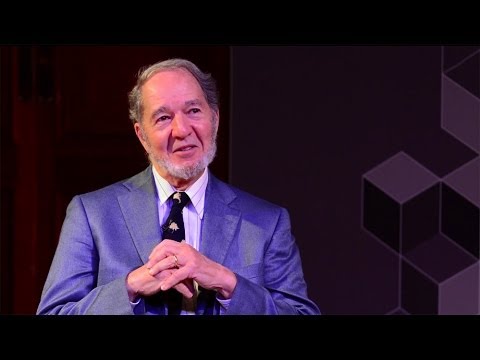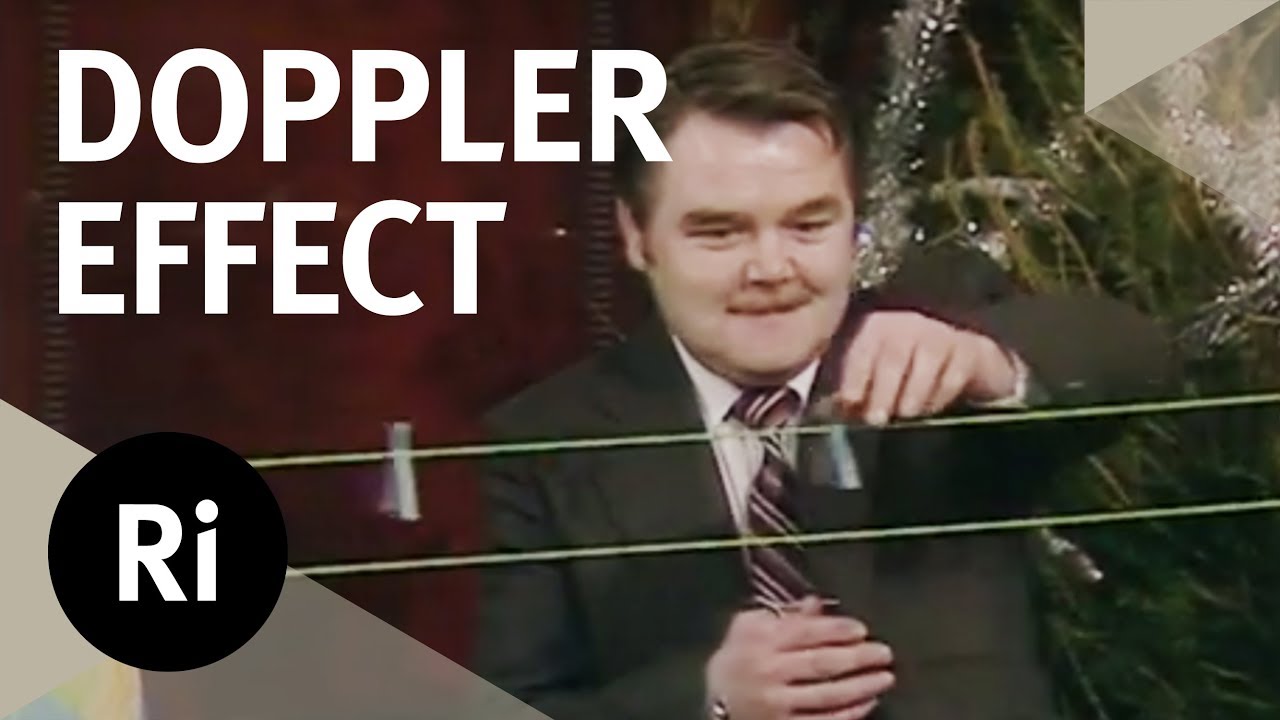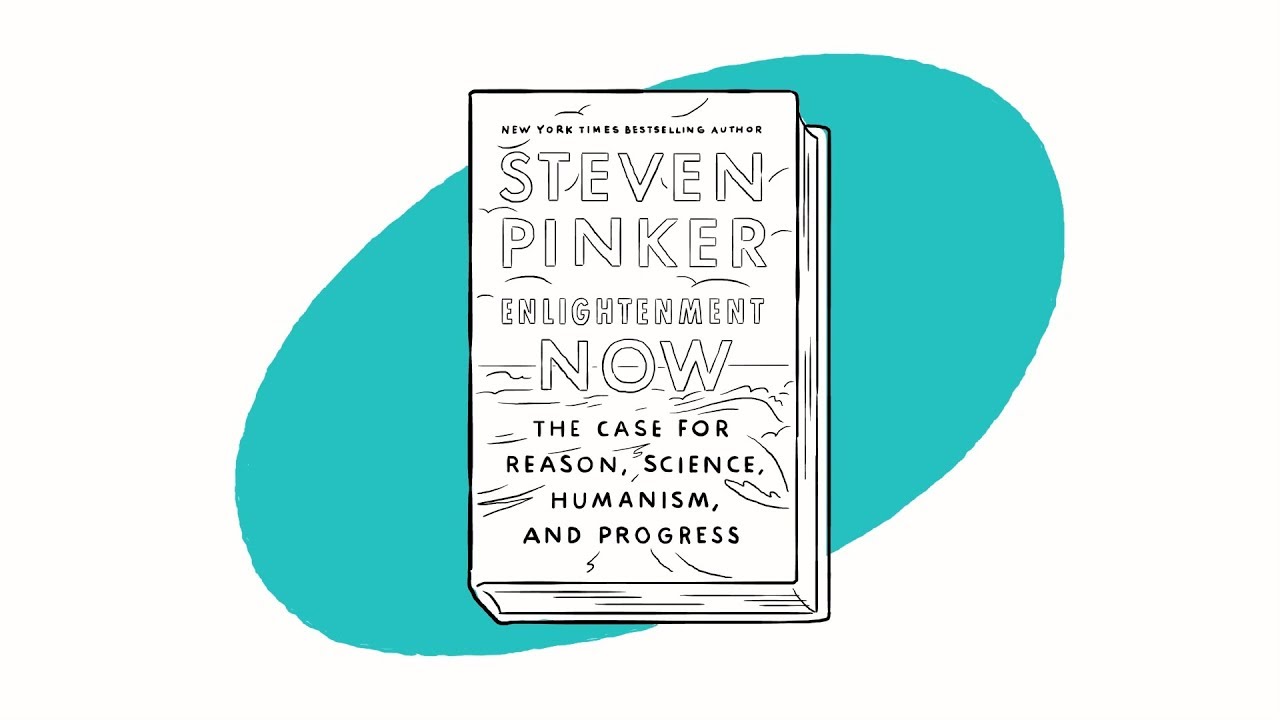The Royal Institution
Pulitzer Prize-winner Jared Diamond takes you on an epic journey into our rapidly receding past, opening a window on tribal societies and how they can provide unique, often overlooked insights into human nature.
Jared’s book “The World Until Yesterday: What Can We Learn from Traditional Societies?” is available to buy now – https://geni.us/34v5Jf0
This Ri event, titled “The world until yesterday’, took place on 1 October 2013.
The Ri is on Twitter: http://twitter.com/ri_science
and Facebook: http://www.facebook.com/royalinstitution
and Tumblr: http://ri-science.tumblr.com/
Our editorial policy: http://www.rigb.org/home/editorial-policy
Subscribe for the latest science videos: http://bit.ly/RiNewsletter
Product links on this page may be affiliate links which means it won’t cost you any extra but we may earn a small commission if you decide to purchase through the link.
Source




thanks
great! Thanks!
Very interesting!
Very interesting!
Interesting Interview and Great Insights. Thanks!
However, when it comes to Risk Management, I must point out that Mr. Jared Ignores a basic and very important aspect about Risk and Human capabilities.
Certain tasks or Activities that don't require a huge data processing nor skills from our brains ( or even those that DO ) can be mastered by human beings and thus that very task becomes an automatic response from your unconscious . Now, that being said, simple tasks such as cooking, taking shower, brush your teeth whatever, as soon as an human mastered it, we don't tend to rollback and unlearn this acquired skill, but rather improve it along the way. Given the fact that you have done so many times and achieved its success. That don't likely represent a Risk but Watch-list that you brain carries along all together. That don't hurt, that don't weight, that ALLOW us to focus on more pressured matters, such as Terrorism, Global Warming or Inequality. Therefore, the idea that daily-risks are the real risk is rather an fallacy and your brain efforts should be driven by greater and higher complex problems.
I first heard of Jared Diamond in New Scientist,where i read the review of his book;whats so nice is see how gentle kind and thoughtful he is. I truly agree with Jared that people are `victims`to their use of modern media tools to such an extent that face to face interactions are proving quite problematic.He said tapping away on his computer!!!
I didn't finish this yet but is this Jared Diamond, the author of Guns, Germs and Steel? I'm guessing it is since he seems to look familiar.
Very interesting. Well worth the time to watch. They must wear their pants shorter in New Guinea.
We call them traditional societies but is that a euphemism for a society frozen in its development? Or are they societies that have taken parallel tracks — they have still developed but not in the same way we have, obviously.
I find if VERY inefficient and disrespectful to ask 3 questions and then answer them. Why? It does not produce better answers. It just mucks with people's minds.
interesting stuff.
"… today it's truuue." LOL!
Pulitzer Prize-winner Jared Diamond takes you on an epic journey into our rapidly receding past. In this Ri event Diamond reveals how tribal societies offer an extraordinary window into how our ancestors lived for millions of years and how they can provide unique, often overlooked insights into human nature.
Jared Diamond – What can we learn from traditional societies?
Diamond's greatest contribution here may be demystifying traditional societies. they are neither bastions of brilliance nor repositories of something less than human. He does not approach them seeking to confirm some set of biases, but as a means of pulling the curtain back on what connects us as humans. Like those thousands of languages the opportunity to see this aspect of human culture and intelligence at work is fading fast. We need more researchers like Diamond looking at this world.
I love the whole framework for how he looks at the difference in society in relation to the material circumstances they exist in. It would be interesting as a biologist to do the same thing with human physiology in relation to evolution.
If I heard a character in a movie talking like him I'd think "wow, he's going WAY overboard on that fake Boston accent." Except his is real! It's just so pronounced that it sounds like he's faking it. lol!
It's hard to be interesting when you are poor. Wealth affords a number of adventures.
The tribe who killed another tribe's father not only went unpunished, but also got more pigs!!! That's really inspiring to gangster tribes.
Typical how some of the greatest entrepreneurs of our civilization were free to make their own decisions while still being children. Just like in the traditional societies.
He says that we are supposed to eat a diet that is lower in starch? But the New Guineans eat practically nothing but sweet potatoes. We need to eat MORE starch if we are going to solve our diabetes problem.
Watch a snippet from this discussion beautifully animated here: https://youtu.be/-mKptXNhXzw
My guess about the future is nuclear wars and human extinction. I have to apologize to those extremely happy indigenous peoples currently living in the amazon jungle.
You can totally have 'restorative justice'. There is a case where some 10 year old kid and his two friends threw a brick at a hobo and blinded him in one eye. Restorative justice simply means making sure that 10 year old kid lives a LONG life and blinding him in the eye (in a brutal and painful fashion) to give him the gift of an 'impactful experience' so he remembers how crappy and dehumanizing it was to do that to the hobo (especially since that child is probably a sociopath and needs that reinforcement for sociopathic behavior). That is literally an 'eye for an eye' situation but why was that a 'Biblical' old testament thing? Because the Bible got that from the culture and society of Hammurabi's time and some Sumerian kid probably throw a mud brick at some homeless sumerian man with his 2 friends and they realized the death penalty was not the right way but rather to gift that child with the insight of knowing the effects of their own behavior. They get the joy of being blinded but only one eye, hence the term 'eye for an eye'. That is just one example of true 'restorative justice' and in most cases it involves no bodily harm, but in some cases that would be needed.
ty
He has such strong opinions on economics, but he didn't mention ever studying it. What a great demonstration of the Dunning-Kruger effect. Thank you Dr. Diamond.
omg…it's bugging me, what kind of dinosaur is on his tye?
Europe PROPER was a "traditional" society right up until maybe 1,500 years ago. Britons were living in thatched huts right into 1000AD. The fundamental untruth here is that civilization and "traditional" societies are like oil and water is false. There were plenty of civilizations in the Amazon jungle 500 years ago and those civilizations were born from traditional societies. Civilzation itself is an evolution of tradition from older cultural patterns. It is just the opposite of globalization which is a modern European pattern of development created as a result of their global conquest and expansion 500 years ago. But Europe wasn't the birth place or origin of modern civilization. The Romans who conquered Northern and Western Europe called them barbarians for a reason. And Europe proper was considered BEHIND most of the rest of the world right up until the 1500s and the aforementioned global expansion and conquest. Traditional societies and civilization go hand in hand historically because civilization emerged out of the traditions and practices of local traditional groups. Jared Diamond is still promoting the global conquest model of Europeans as the basis of civilization and that is not the way civilization started. The first civilizations on earth did not rise because of a desire to conquer the world. And if we were able to go back in time to Egypt, Syria, the Levant and other places where civilization was born we would see them as "advanced" traditional societies. The development of civilization requires a "peaceful" evolution and settlement of populations in an area where they can begin merging, forming and building the traditions and evolving them to the point that "civilization" can emerge. You cant do that if your villages are being burned and the lands being pillaged by constant conflict. And the root of the word civilization is "civil" which had nothing to do with constant war and conquest which Europeans have used to build THEIR civilization. But that is not how civilizations emerged and that is why it did not emerge in Europe.
He needs a new jitterbug phone.
People are very poor at assessing risks. He might have added bicycles and some pharmaceuticals.
love this old dude, he's even better than master wu gui
Read the book, the prominent feature is the application of human intelligence, fast and focused for NG people, slow and complicated for outside observers with multiple examples of similar situations to compare. It's a demonstration of what Actual Intelligence operating in a global culture means, and why machine intelligence, systematic cataloging sped up, is inevitable.
This meeting took place two years before the UK's Brexit referendum. I wonder whether Professor Diamond, or his new book (or his wife), can demystify the reasons for the rigidity, anger and unrealism over Brexit.
We need to educate our students to find their Flow!!! Be with The One Groove & entrain Earth!!
my first time engaging in a interview with Mr Diamond
Traditional societies and modern societies had and still have the same problem; the problem being that human senses, sense the world, not at the micro biological level, nor at a macro universal level, rather predominantly at the ‘normal’ human perception level.
I see me, therefore I am what I perceive, and the world is as I perceive it to be, and the story I tell myself about my reality must be true.
DNA, genetics, climate science, the sun, based on the core model of physics was and still is an enigma for the vast majority of past and present humans; and regardless of cultural differences, all cultures are profoundly more contented with prefabricated stories about their worldview…there being some very, very bazaar make believe views , past and present, traditional and modern, about religiosity, leadership and the importance of economics. The misleading jewels of past and present cultures…argh; versus the crowning joule of the universe …erg! ATP! ASAP!
Mr Diamond for Nobel Prize! Racism is a plague, as we have seen until recently, and it arises from a condescending look on the other. This is why I am launching a petition to propose Jared Diamond to the 2021 Nobel Peace Prize. His books restore their dignity to a number of civilizations, including the last hunter-gatherers still existing, which he frequented for years. One of his books particularly "kills" racism: "Inequality among men". I suggest that you sign this petition on @t
@t
What he speaks about risk is exactly Nassim Taleb's point. Risk has accumulative nature that is in odds with our current paradigm of "average risk." : Google Nassim Taleb + ergodicity.
I learned some things today.
Thou shalt not compare mutliplicative risks (terrorism, pandemics, world conflict, GMOs) with additive risks (slipping in the bathtub, dyeing of flu, dying on an airplane). Read Jared Diamond for geography/natural history/biology, read Nassim Taleb for sound risk analysis.
Isn't there also a contradiction in the emphasis on reducing our exposure to all forms of additive risk (if I understand him right, talking about cars, sleeping under trees, getting showered) and encouraging children to be much more bold in exploring risk for themselves? The independent learning process necessarily entails increased exposure to smaller cumulative risks in the short-term so that children are 'fragilised' by being insulated from risk until they reach adolescence (and then proceed to engage in massive, fatal risks because they don't know any better). You can't have it both ways.
Insightful
The biggest difference between western civilization and primitive societies that this series absolutely ignores, is that We already have a culture of knowledge (in books and internet), we also have a culture of education, we understand how the natural world works (Math, Physics, Biology, Chemistry), we have a culture of technology, not just high tech, we even understand 1800's tech/ We know how to make things, we know what is bad for the environment, we know how to repair things that are broke (even the environment), lastly we can even synthesize things and don't have to wait for nature to produce them.
For me what I think we lack is a giant step forward to develop technology that can be used to preserve and maintain the basics, and the sum total of everything humanity has accomplished thus far. Eg, a way to store the complied knowledge of our civilization inside a cheap and easy to access medium for the future generations. This Technology should be easy to use, very durable, low power, and widely distributed. It should be weather proof and not easily degraded by chemicals, heat, bacteria. It should be readable and audible in multiple languages. (A Tall Order).
I think the real danger we have today is with socio-political attitudes of a well fed society going too far with new-found "freedoms" which in fact inhibit freedom, and a tendency toward centralization of power. Another danger to consider might be outsourcing our production capability , say to foreign countries like China, while politicians (or their families) are getting paid for nothing by China or other foreign sources.
The greatest, most insidious,/pernicious danger is loss of commitment to objectivity and literal and unvarnished dissemination of facts socially and politically by media, universities, and in fake fact checkers.
Lets commit to calling a spade a spade, and if we can do that might just well survive.